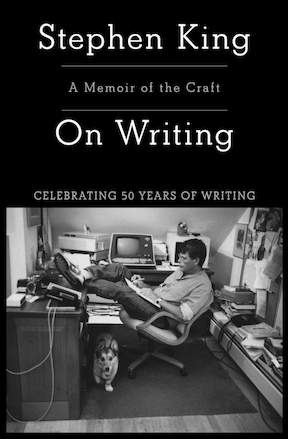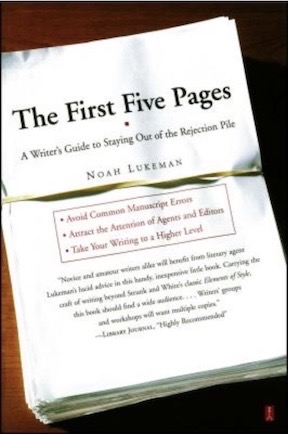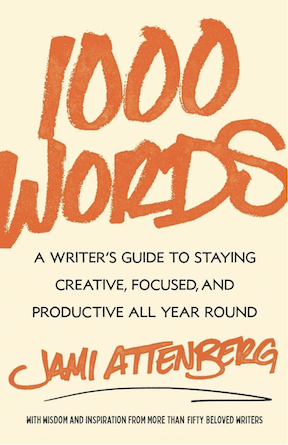In search of something to motivate me to get back to writing regularly, I stumble upon a book that gives me a goal.
I’ll share a secret with you: I have always wanted to be a writer. I started writing when I was about 13 and filled many spiral bound notebooks with my neat printing in ink, building characters and telling stories. Writing was in my blood, something I just felt I had to do.
In my junior year of college, when I somehow found myself as an accounting major, I called my mother and told her I wanted to change my major to journalism. She had a hairy fit and told me I’d never make a living as a writer.
I stuck with accounting and spent the first eight years out of college as an auditor and financial analyst. I was good at my job but miserable. I dreaded going to work every day.
Then I left my very secure job at the corporate headquarters of a Fortune 100 company and became a freelance writer. My mother had another hairy fit but this time I was smart enough to ignore her. And then I proved her wrong.
My writing career revolved around computer how-to books. Back in the early 1990s until about 2010, these books were in high demand and I churned them out, learning pretty quickly that the only way to make a living doing it was to have a bestseller or write a lot of books. So I wrote a lot of books until I had a bestseller. And another bestseller. And I kept writing. By the time people pretty much stopped buying computer how-to books, I’d written more than 80 of them, had gotten training as a helicopter pilot, bought a helicopter, and was ready for my next career.
But that doesn’t mean I stopped writing. I wrote in this blog. I wrote articles about flying and later about boating. For a long while, I worked on fiction — novels for myself; I never intended to try to get them published.
Then I had a disruption in my life that made it difficult for me to write. It was as if a spark had been extinguished and I couldn’t get it relit. Sure, I could still spit out blog posts and the occasional article. But my fiction mojo was gone. And it still is.
Motivation
Every once in a while, I read a book that motivates me to get back to writing, that reminds me the spark once existed and the skills are still there. It’s just a matter of getting back to it, to dedicating the time to a project, to staying focused enough to produce something worth reading.

The first book I read that made me feel like that was On Writing by Stephen King. I mentioned this book at least one other place in this blog, in a post from 2009 called “Writing Tips: Soaking Up Creative Energy.” In that post, referring to King’s book, I wrote:
Did you ever go someplace or do something or read something or see something that made you feel almost feverish about writing (or painting or doing something else creative)? It’s as if this place or thing gave you a poke with a creative juice taser. After (or during) the experience, you must create. You’re driven to create.
This was before my disruptive life event. But I remembered the way the book made me feel and I re-read it. Sadly, it didn’t hit me with the same force the second time around.
So I kept looking for other books to motivate me. I suspect I’ve already blogged about this once within the past five years, but I can’t find the post right now. I know I recently tooted about it on Mastodon.
I will mention here — to forestall suggestions — that I tried Bird by Bird by Anne Lamott. I didn’t like it the first time I read it. When pressed again and again by folks to read it, I tried again, thinking I’d missed something. I didn’t like it any better. I did not like the author or her voice or her self-pitying attitude. (At least that’s how it seemed to me both times.) I could not identify with her at all; we had nothing in common. I also didn’t like the introduction of religion and God into a book that was supposed to be about writing. So please don’t recommend it. It didn’t do anything for me except make me wonder why so many people were so in love with it.

I did read another book a long time ago that motivated me. I have a copy in my library to re-read. That one’s called The First Five Pages by Noah Lukeman. I remember that after reading it, I was so enthusiastic about it that I contacted the author to thank him for it. That was probably not long after the book came out in 2000, long before my disruptive event. I’m hoping a re-read will bring some of that feeling back.
Let me mention two other books that I recently ordered and hope will motivate me. (With luck, my housesitter will have brought them in and left them on the countertop for me when I get home from my current trip.) The Writer’s Notebook I and The Writer’s Notebook II are two books full of writing essays from the writers of the highly regarded literary magazine Tin House. I’ll admit that I had never heard of these books (or the magazine) until I watched a YouTube video that explored topics covered in one of the essays.
1000 Words

The book that triggered this post — and a New Year’s resolution — is called 1000 Words, edited by Jami Attenberg. The book’s backstory is this: Jami and another writer friend (who happened to be a teacher) wanted to motivate themselves and each other to work on their various projects. They decided that they would each write 1000 words a day (minimum) for two weeks straight as a sort of “boot camp.” They felt that they could stick to it because they’d be cheering each other on. A buddy system. (I have found this extremely effective for a lot of goals.) They’d do it in the summer when the teacher was off from work. Jami has a social media presence and shared info about it on various social networks. The next thing she knew, it had a hashtag and hundreds or thousands of people were participating in the “1000 Words of Summer.”
Once the thing took off and she started getting feedback about it, she was also able to get short essays from writers to include in this book. So that’s basically what the book is: a bunch of very short essays by writers about writing.
Is it good? Well, it’s not as good as I hoped it might be. Some essays are good and very helpful to me. Others ring flat, like a self-help book written by a new age guru. It’s a library book, so I can’t annotate the pages to highlight the helpful passages I might want to return to. I’m getting through it slowly. The main problem is that I tend to read in bed and most books put me to sleep.
But it did do something for me: it triggered a New Year’s resolution to write at least 1000 words a day. That’s going to force me to sit down at a keyboard and write something, either for an existing project, such as my Great Loop book, or a new project, such as the mystery novel I began years ago and lost in a hard disk crash. (That was a different disruptive event in my life. Back up your files, folks!) Or even a blog post.
NaNoWriMo vs 1000 Words of Summer
If you follow writer’s forums and the like, you probably know about the recently disgraced NaNoWriMo. This is an annual event held in November, National Novel Writing Month. It’s been around for at least 20 years and apparently some participants have had some measure of success with it. The goal is to knock out a complete novel of at least 50,000 words in one month.
There’s a scene in the movie Amadeus when Mozart is told that one of his works has “too many notes.” As a writer, that always hit me hard. I believe that a creator will make something just as long or as short as it needs to be. I’d rather read a short novel that moves along without a lot of repetition than a longer one that seems obviously padded to meet word count requirements. Every word should count.
Yes, that’s more than 1,000 words a day. The average adult novel is 50,000 to 100,000 words, depending on what resource you look at. Even if you shoot for the low end, that’s still more than 1,600 words a day.
The goal of NaNoWriMo is to force you to complete a book project in a month. If you’re the kind of person who always seems to have a reason to not work on a project — like me these days — the camaraderie of the NaNoWriMo crowd might be just what you need.
But I think 1,000 words a day is just as good a goal, provided that you keep it up until you’re finished.
(November is a dumb month to write a novel anyway. Who can find time with the holidays coming up? Why couldn’t it be January or February?)
My New Year’s Resolution
Like most folks, I have more than one New Year’s resolution. The one that matters here is the goal of writing 1,000 words a day. I think I can do it at least 5 days out of 7 for the whole year.
What do you think?
(I’ll be honest with you: I wrote this post on January 1 right after writing another post. I’m up to 3300 words so far today and I have yet one more topic I want to explore for tomorrow.)
And yes, I’ll ask this question: What writing book have you read that fired you up about writing and made you want to get right to it?
Discover more from An Eclectic Mind
Subscribe to get the latest posts sent to your email.

Let me blunt, great writing does not start with a ‘Words per day’ discipline, it starts with an experience that others can imagine or want to read about.
We have both flown helicopters so let’s use an example we both know. Robert Mason’s ‘Chickenhawk’. I was stunned and exited by that book, it was real, mainly true and brilliantly told.
Its power was in his capacity to ‘share the drama’.
But you don’t need to be a Huey pilot in Vietnam to enter that head space, Jane Austen can describe tense social situations she encountered in English drawing rooms 200 years ago which are still just as real.
I’m not trying to be a great writer. I’m already a very good writer. That’s a proven fact. (And yes, I’m tooting my own horn here.)
What I’m trying to be (again) is a productive writer. That’s where productivity goals can pay off.
It was easy for me to be productive in the old days when my livelihood depending on producing to earn milestone advance payments. There was always a check being dangled out in front of me, so I produced. There’s no check now — at least not one being dangled. I need to finish the project to get a return on my investment of time. The only way I’m going to finish the project is to work on it. The best way I see (at least right now) to motivate myself is with these silly word count goals.
And I have to say that it’s working. I’ve been working on that Great Loop blog and videos daily for the past 3 days. If I can do it 5 out of every 7, I’ll get done before summer starts.
I accept your argument if that is your ambition, to be a helpful record keeper and useful source for the uninitiated. You are certainly excellent at that.
My wish is that you go beyond that goal and take a dive into the cool pool of creative writing. You often give hints about your struggles, with divorce, family expectations, near death experiences in a helicopter. These are powerful emotional valences.
If you were to weld the clarity of your writing with the emotions you feel you could be a great novelist. Just imagine how Jane Austen might struggle to describe a forced autorotation! She couldn’t.
Her life was v. dull by your standards.